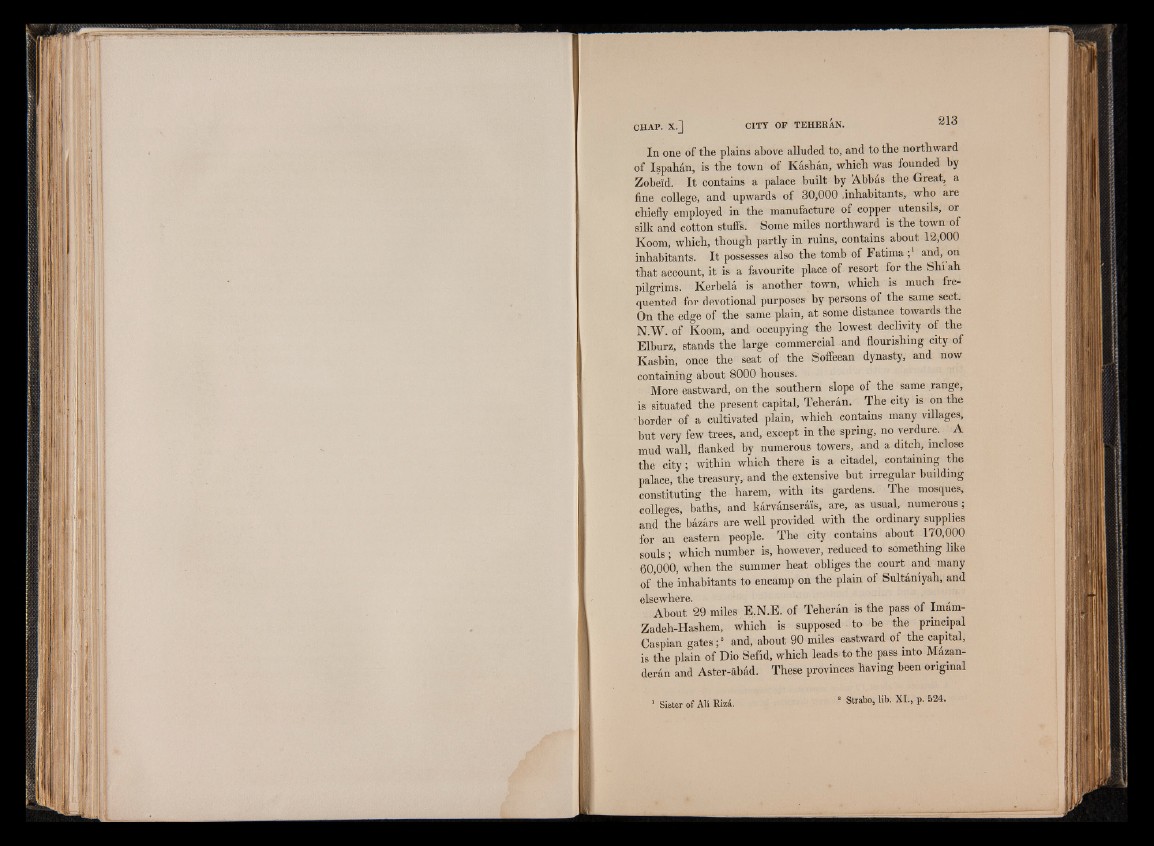
In one of tlie plains above alluded to, and to the northward
of Ispahan, is the town of Káshán, which was founded by
Zobeid. It contains a palace built by Abbás the Great, a
fine college, and upwards of 30,000 .inhabitants, who are
chiefly employed in the manufacture of eopper utensils, or
silk and cotton stuffs. Some miles northward is the town of
Koom, which, though partly in ruins, contains about 12,000
inhabitants. It possesses also the tomb of Fatima and, on
that account, it is a favourite place of resort for the Shiah
pilgrims. Kerbelá is another town, which is much frequented
for devotional purposes by persons of the same sect.
On the edge of the same plain, at some distance towards the
N.W. of Koom, and occupying the lowest declivity of the
Elburz, stands the large commercial and flourishing city of
Kasbin, once the seat of the Soffeean dynasty, and now
containing about 8000 houses.
More eastward, on the southern slope of the same range,
is situated the present capital, Teherán. The city is on the
border of a cultivated plain, which contains many villages,
but very few trees, and, except in the spring, no verdure. A
mud wall, flanked by numerous towers, and a ditch, mclose
the city; within which there is a citadel, containing the
palace, the treasury, and the extensive but irregular building
constituting the harem, with its gardens.. The mosques,
colleges, baths, and kárvánserais, are, as usual, numerous;
and the bazars are well provided with the ordinary supplies
for an eastern people. The city contains about 170,000
souls ; which number is, however, reduced to something like
60,000, when the summer heat obliges the court and many
of the inhabitants to encamp on the plain of Sultániyah, and
elsewhere. ■ T ,
About 29 miles E.N.E. of Teherán is the pass of Imam-
Zadeh-Hashem, which is supposed to be the principal
Caspian gates ; 2 and, about 90 miles eastward of the capital,
is the plain of Dio Sefid, which leads to the pass into Mázan-
derán and Aster-ábád. These provinces having been original
1 Sister of All Rizá. 2 Strabo, lib. XI., p. 524.